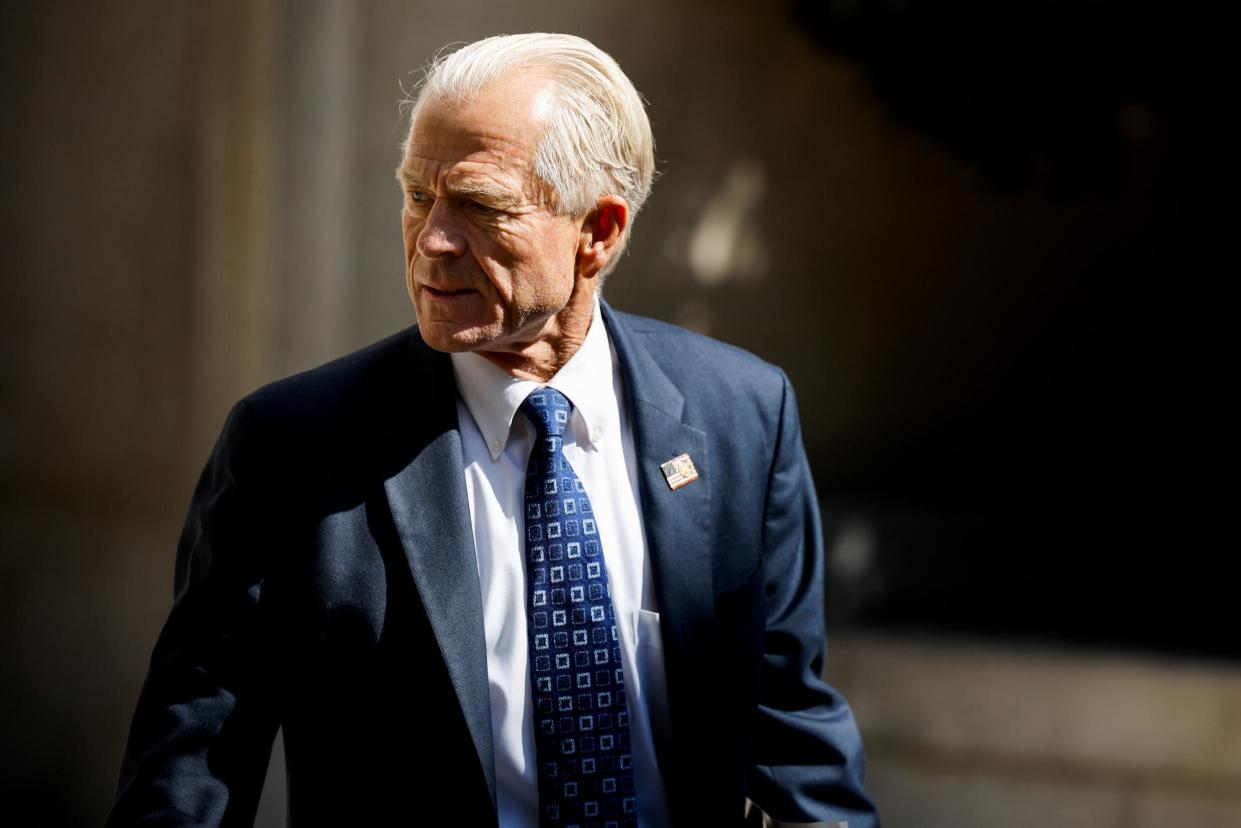Ex-Trump adviser Peter Navarro sentenced to four months in prison

Peter Navarro, a top former Trump administration official, was sentenced to four months in federal prison and fined $9,500 after he was convicted of contempt of Congress for refusing to comply with a subpoena issued by the House select committee that investigated the January 6 Capitol attack.
The sentence imposed by Amit Mehta in federal district court in Washington was lighter than what prosecutors recommended but tracked the four-month jail term handed to former Trump adviser Steve Bannon, who was similarly convicted for ignoring the panel’s subpoena.
Related: E Jean Carroll defamation trial against Trump to resume after Covid delay
“You are not a victim, you are not the object of a political prosecution,” the US district judge said from the bench. “These are circumstances of your own making.”
Navarro, 74, was found guilty in September of two counts of contempt of Congress after he refused to produce documents and testimony in the congressional investigation into the Capitol attack, claiming that executive privilege protections meant he did not have to cooperate.
The committee took a special interest in Navarro because of his proximity to Trump and his involvement in a series of efforts to overturn the results of the 2020 election, including to have members of Congress throw out the results in a plot he named “the Green Bay Sweep”.
But Navarro’s subpoena defiance prompted a criminal referral to the US attorney’s office for the District of Columbia, which brought the charges and ultimately asked for six months in jail because he brazenly ignored the subpoena even after being told executive privilege would not apply.
“He cloaked his bad-faith strategy of defiance and contempt behind baseless, unfounded invocations of executive privilege and immunity that could not and would never apply to his situation,” prosecutors wrote of Navarro in their sentencing memorandum.
Within hours after the judge handed down the sentence, Navarro’s lawyers John Rowley and Stanley Woodward filed a notice of appeal to the US court of appeals for the DC circuit. As with Bannon, Navarro is expected to have his punishment deferred pending appeal.
Navarro’s lawyers had asked for probation, saying the judge himself seemed to acknowledge at one point that Navarro genuinely believed Trump had invoked executive privilege, a separation-of-powers protection aimed at ensuring White House deliberations can be shielded from Congress.
The privilege, however, is not absolute or all-encompassing. The January 6 committee had sought both White House and non-White House material, the latter of which would not be included, and the judge concluded in any case at a hearing that Trump had never formally invoked the privilege.
Regardless of what Navarro may have believed, the judge found, he failed to prove the existence of a conversation or communication from Trump that explicitly instructed Navarro not to cooperate with the January 6 committee’s subpoena specifically.
That proved to be the central problem for Navarro.
Before charging Navarro, prosecutors decided not to bring charges against two other Trump White House officials – Mark Meadows, the former chief of staff , and Dan Scavino, former deputy chief – even though they also did not cooperate with the January 6 committee and were referred for contempt.
The difference with Meadows and Scavino, as the record later appeared to show, was that they had received letters from a Trump lawyer directing them not to respond to subpoena requests from the panel on executive privilege grounds.
Navarro received a similar letter from Trump directing him not to comply with a subpoena from around the same time issued by the House committee that investigated the Covid pandemic. But he was unable to produce an invocation with respect to the later January 6 committee.
“Had the president issued a similar letter to the defendant, the record here would look very different,” the judge said at a hearing last year.
The January 6 committee completed its work last January, writing in its final report that Trump criminally engaged in a “multi-part conspiracy” to overturn the results of the 2020 election, conspiring to obstruct Congress and conspiring to defraud the United States.
Last year, the US justice department charged Trump on four criminal counts related to his efforts to reverse his 2020 election defeat and impede the transfer of power. Trump was also charged in Georgia for violating the state’s racketeering statute for election interference efforts there.
